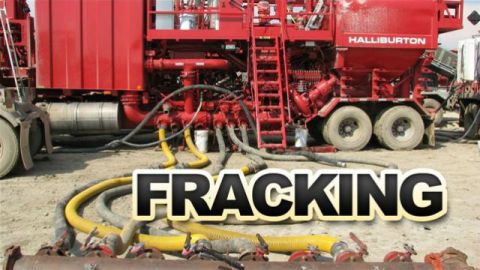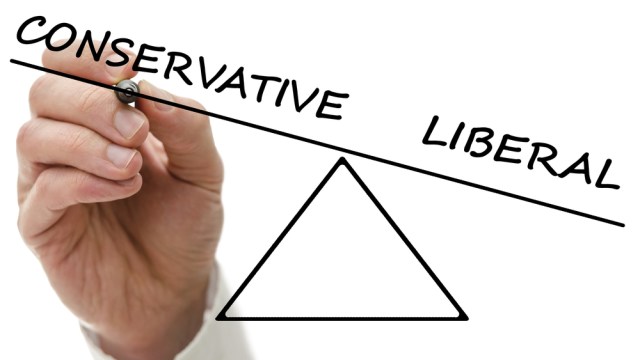Fracked Up News Coverage of Fracking

What do you know about fracking, the process of injecting water and sand and chemicals under high pressure into deep rock, cracking the rock open and allowing recovery of natural gas and oil. Maybe you’ve heard that it has produced new supplies of energy and helped cut greenhouse gas emissions, since using natural gas to make electricity creates only half the CO2 emissions of coal. Maybe you have also heard that it can cause earthquakes, water pollution, or that methane gas leaks from fracking can contribute to global warming.
But more importantly, how do you know what you know about fracking? Have you researched it yourself, or just heard about from friends, or maybe in a movie or a TV show. If you’re like most of us, you’ve probably learned about fracking from the news. Well, that can be dangerous, because news reporting on health threats can sometimes be all fracked up. A recent report by the Associated Press about fracking serves as a great example.
The headline on the AP “Big Story” on January 5 read “Some States Confirm Water Pollution From Drilling”. Not too ominous. But reporter Kevin Begos says in the lead paragraph that ”…hundreds of complaints have been made about well-water contamination from oil or gas drilling, and pollution was confirmed in a number of them, according to a review that casts doubt on industry suggestions that such problems rarely happen.” Whoa! Lots of water is being contaminated, and drilling companies are lying.
Only, if you read on, you discover that while there were lots of complaints, there was hardly any actual pollution (which is what the companies claim is rare). 12 paragraphs into the story Begos reports that Ohio had 190 complaints in 5 years, only 6 of which involved actual pollution. West Virginia had 190 complaints, and only 4 cases that prompted clean up. Texas had 2000 complaints, and NO confirmed cases of pollution. Pennsylvania had 897 complaints in TWO years, and only 100 confirmed cases of pollution over FIVE years, but Begos doesn’t tell us how many total complaints there were for those five years.
Complaints? Yes, plenty. And that news comes first. But actually polluted wells? Not many, information that comes much later. And, even while acknowledging that the complaints refer to ALL drilling, Begos nonetheless manages to emphasize the connection to fracking, devoting a couple early paragraphs to the drilling technology that’s stirring up controversy, even going so far as to note that while other sorts of drilling may cause pollution, “Experts say the most common type of pollution involves methane, not chemicals from the drilling process.” Oops, there we go again… confusing complaints and pollution.
So is it any surprise what happened when prominent news outlets ran the AP story; USA Today – Four States Confirm Water Pollution from Drilling confusing ‘complaints’ with ‘pollution’. At least they distinguished drilling and fracking. Not Salon; Water pollution from fracking confirmed in multiple states. They got the ‘pollution’ part wrong as well as the ‘fracking’ part.
This is how you and I find out about risks, whether they are environmental, or about health care or medicines or food safety or transportation safety or crime. The coverage often emphasizes the scary and controversial aspects of the story and buries, or omits altogether, any information that might moderate the fear or controversy. Sometimes risk reporting does just the opposite, and rather than hyping the fear, it overplays and hypes the cure or the answer or the solution, and plays down or leaves out information that moderates what those stories are selling… hope.
Sure, the news business is a business. It makes a living getting our attention. Reporters and photojournalists want our attention too, although not for the profits of their paymasters but for their professional egos. As a result we are fed more fear than is fair, and more hope than is helpful. And we end up living in a world of too much fear, or false hope, which is unhealthy
It’s up to us to do something about this. We could just tune out of the daily news hype-a-thon, but that would leave us uninformed. We could complain, which might help, a little. Or we could vote with our clicks and subscription dollars for the news providers that do a more honest job with their risk reporting. There are plenty out there. Pro Publica did a solid investigation of water pollution and fracking in 2008. Ken Ward Jr. in the Charleston Gazette documents how the state of West Virginia ignored warnings and suggestions for tighter regulations that might have prevented the recent chemical spill that polluted the drinking water of 300,000 people in Kanawha County . Both are great examples of journalism serving the public with aggressive reporting that honestly lets the facts speak for themselves.
Find the news providers doing a more honest job with their coverage of risk, and support them. As the new media/online media search for ways to make a living, make responsible news coverage of health risks a successful business model. Otherwise the choices you make about how to protect your health may be, well, at least a little fracked up.





